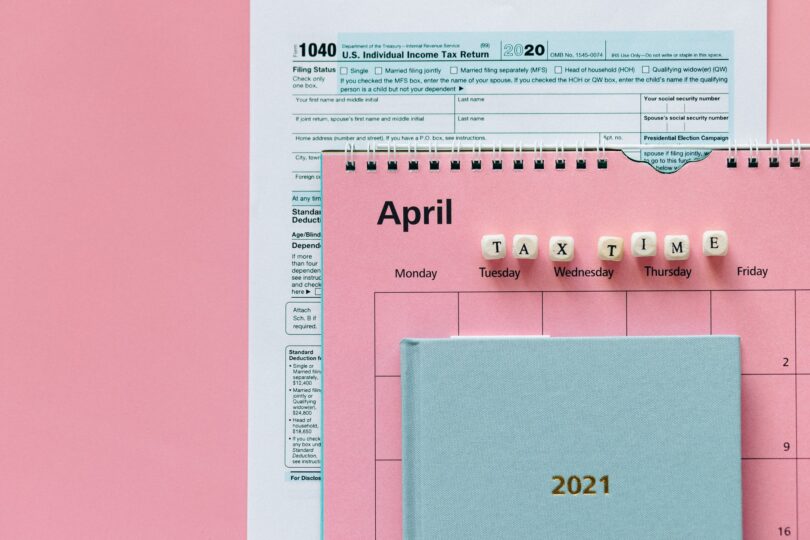The IRS, also known as the Internal Revenue Service is getting a lot of attention on social media for an obscure proposal by the Biden administration that would expand agencies to root out tax evasion by giving the IRS a minimum $600 annual report on the flow of bank accounts. Seeking revenue, the administration-designate argues that a robust reporting system would reduce the so-called tax loophole and help the IRS identify billions that wealthy taxpayers owe to the government that are not paid. Rather than deterring or helping tax cheats, the Biden administration’s proposal on bank reporting would generate significant revenue and build on a better agenda.
Supporters of the White House plan point out that it does not require new taxes and allows the IRS to enforce the law. Fearsome banks have lobbied against the Biden administration’s bank reporting proposal, which would protect taxpayers “privacy by requiring banks to provide basic aggregate information on capital flows.
The proposal requires banks to submit annual reports on gross inflows and outflows from business and personal accounts of up to $600 in transactions to the IRS, an agency plagued by budget cuts and outdated technology, compared with $600 a year. Banking lobbies claim the proposal would allow the monitoring of bank accounts so that the IRS could see in real time what people are doing to them.
The proposal put forward by the Treasury Department would require banks to provide more data to the IRS on accounts that meet a lower $600 threshold. The proposal would allow the IRS to monitor bank transactions above $600 to see if banks report the total outflows to the IRS for bank accounts with transactions worth $600 or more, according to the Wall Street Journal.
Legislation requiring banks and other institutions to report customer account information would raise federal taxes more, as banks would have to report transaction data for accounts with inflows and outflows of more than $600. The proposal requires financial institutions to notify taxpayers and the IRS of any bank account with interest of over 10% and to document the total amount deposited and withdrawn into personal and business accounts. Under a proposal from the Treasury Department released in May as part of its budget request, banks would also have to record how much money has gone into each account, excluding accounts with less than $600 and accounts with balances above $600.
Bankers and consumers have pushed through a bill that would require banks and other institutions to report customer account information that would generate more than $3.5 trillion in taxpayer money under the proposal of the Biden administration. The proposed reporting system of the Internal Revenue Service would expand the income tax data that banks must report to their clients and include a list of possible revenue streams in a draft on Capitol Hill that is circulated and obtained by American Bankers. The proposal to allow the IRS to monitor banking transactions over $600 was about fighting tax fraud by the super-rich, not spying on ordinary Americans.
The letter, which included support for several banking coalitions, called on Congress to reject Biden’s latest proposal, saying it would violate customer privacy and create costly and burdensome reporting requirements for banks. If Congress passes the proposal, the IRS, an agency plagued by budget cuts and obsolete technology, would not be able to use the new data meaningfully to find tax evaders. Biden’s proposal would require banks to submit all account information for accounts with more than $600 to the Internal Revenue Service.
The new proposal would require them to share account balances information with the IRS. The administration’s proposal would also require financial institutions to report two additional pieces of information on customer accounts: gross inflows and gross outflows per year.
In a letter viewed by CNBC, the IRS chief Sen. Elizabeth Warren, D-Mass., said relying on banks to report basic information about deposits and withdrawals by their customers would make a big impact on tax evasion. The IRS chief advocated a provision of the American Family Plan that aims to reduce the tax gap by requiring banks to publicly report withdrawals and deposits from customers instead of relying on taxpayers themselves.
In a speech on September 16, Biden highlighted a provision that would require banks to report inflows and outflows of accounts with more than $600 in activity to the IRS annually in order to get Democrats to make massive offsets to help the wealthy and close the wealth gap. Gale pointed out that the Democratic reconciliation bill does not include the $600 reporting requirement to combat tax evasion, but would fund the IRS so that it can hire more staff and buy better equipment to do its job. Legislative proposals that require banks and other institutions to report customer account data are intended to raise more federal tax dollars and are seen as a source of revenue under the proposed $3.5 trillion budget reconciliation by the Biden administration.
The initially low figure stems from a new rule that went into effect last year requiring online sellers to report income of more than $600 to the IRS, giving the impression that a quarter of middle-income taxpayers are mistakenly innocent. The real outcome of giving Biden the $600 threshold would be a flood of IRS reports on 140 million bank accounts, which could end financial privacy because the agency does not process all the tax returns it receives. The Biden administration’s bank reporting proposal would give the IRS visibility into an often opaque form of income that falls to high-income individuals.




